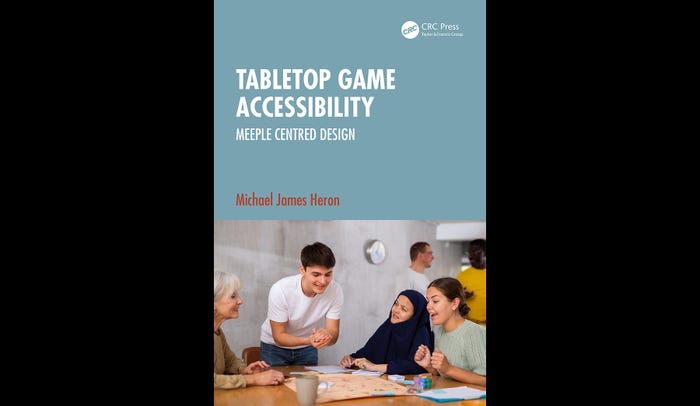This Week In Video Game Criticism: Limbo Of The Critics
This week, our partnership with game criticism site Critical Distance brings us fascinating bloggers on Playdead's XBLA hit Limbo, Alan Wake's DLC and gender in World Of Warcraft.

[We're partnering with game criticism site Critical Distance to present some of the week's most inspiring writing about the art and design of video games from commentators worldwide. This week, Ben Abraham examines many bloggers' takes on Playdead's XBLA hit Limbo, as well as discussions on Alan Wake's DLC and gender in World Of Warcraft.] I spent the latter third of this week recovering from an operation to remove my wisdom teeth, so if anything seems a bit off in This Week In Video Game Criticism, I'm going to blame it on the drugs. First up this week is a trifecta of posts from GameSetWatch, where this column is reprinted - Zoran Iovanovici is back talking about Metal Gear Solid 4 and the War Economy this week, and Jamie Madigan looks at a concept called 'psychological reactance' in the games of BioWare. The third is Ian Bogost who is rightly afraid that his Facebook game Cow Clicker may become his most well-known (certainly his most virulent) project to date, as he tells Leigh Alexander. I'll admit I've kind of become attached to my Soviet Cow in Cow Clicker. In response to Bogost's 'Cow Clicker' and the interview above, Nels Anderson asks 'What does free really cost?' in which he looks at the non-monetary costs associated with the compulsive social game. On the flip side of the social game discussion, Erin Hoffman's 'How Social Games Ate Our Lunch' reports on the surprises that she uncovered in her "full immersion" into the social game realm, leading to her conclusion that, "we should be acknowledging and welcoming this new kind of gamer, and listening to what they have to say. From Senet to Settlers of Catan to Counter-Strike to FarmVille, we are all gamers, connected through the electric muse of interactivity, chasing the same brain state. And that, especially when it unnerves us, is a beautiful thing." Elsewhere, David Wildgoose at Kotaku Australia kicked off the healthy amount of discussion seen around the XBLA game Limbo this week. Wildgoose, inspired by a Kyle Orland piece at Gamasutra, talks about game durations in 'Does length matter?' He relates a common occurrence at tradeshows like E3, stating that, "Almost without fail, a game demonstration at events such as E3 will conclude with one of the assembled media enquiring as to how many hours of gameplay are contained within the game we just saw. If I'm rolling my eyes, the developer giving said demonstration would surely want to do likewise. After all, it's a stupid question." Continuing the discussion, Brian Longtin at Under Culture discusses 'Death and Education' in Limbo, saying that "By setting its action in a literal out-of-body experience, Limbo changes our perception in two major ways that make it essentially and marvelously different than its peers." Go check out the full piece for the details on those two ways. Mitch Krpata had a rather different response to Limbo, however, proving the rule that not all games are made for all people. Krpata felt the game was, "Some clever ideas thrown onscreen with no regard for how they fit together, and no semblance of anything I recognize as good game design. Games are about rules, with the occasional exception that throws you for a loop. Limbo is all exceptions and no rules." In another account, Kirk Hamilton of Gamer Melodico also wrote about Limbo this week, but focused mainly on 'That one puzzle in Limbo' which seemed to give everyone grief. He uses it to launch into a discussion of how much can be expected of a gamer, and how much they are able to draw on the knowledge of a community. Is it safe to assume, for instance, that everyone has access to the internet & GameFaqs? Andrew Kauz at Destructoid also wrote about Limbo this week in piece titled, 'Violence, mystery, and meaning in the dark world of Limbo' - it's certainly been a bumper crop of writing about Playdead's XBLA title, which seems to be doing excellently in sales, too. Moving on from Limbo, John Walker at RockPaperShotgun demonstrates with some pretty graphs the definitive connection between the Grand Theft Auto series and the rate of deaths/divorces, etc. This is a post with its tongue planted firmly in its cheek. Graphs can't be wrong, right? Brendan Keogh looks at 'Player Privilege: Why It Is Still Just A Game' in a thought provoking post on Critical Damage. Here's what he has to say about it: "The majority of games hand the player all kinds of privileges that affect how they experience the game. The player has received these privileges for so many years that not only is there a presumption that these privileges are required, but most players are so comfortable in the current environment that they do not even know such privileges exist. I want to abolish the player's privileges—or at least challenge the player's dependency on them." The phrase 'Ludonarrative Dissonance' has been a contentious once ever since it was introduced by Clint Hocking in his famous essay on BioShock. This week, Corvus Elrod took the phrase to task in a post for his Semionaut's Notebook, saying, "When we use the term ludonarrative dissonance to describe gameplay that does not support that plot and theme of the narrative, we are saying that gameplay is fundamentally other than storytelling. That gameplay and story are somehow haphazardly stapled together in an uncomfortable union. Nothing could be further from the truth." Elsewhere, Kris Ligman at Pop Matters writes about 'Worlds Without Words: What German Expressionism Can Teach Us About Game Design'. This piece comes highly recommended. And Daniel Primed -- at his personal blog -- attempts to 'deconstruct the Mario franchise on the Game Boy'. At BitMob, Omar Yusuf asks "what techniques should developers employ in order to achieve the same verisimilitude which Spielberg injected into [Saving Private Ryan]?" which, while an interesting thought exercise, seems to miss a bit of the point about the differences between the two media. It also presents a good excuse to link to Clint Hocking's "Live and Let Die" post from (coincidentally) this same week last year, in which Hocking explains why he feels aping cinematic techniques in games is a bit of a dead end. Hocking notes that, "By mastering these narrative techniques and wedding them to our designs...we can arrive at Saving Private Ryan. What that means is that 10 or 20 or 50 years from now, we will deliver a brand new entertainment medium that is as powerful and moving as one we already have. That's great, I guess. But if I am going to dedicate my life this, I want to end up with something that is more, something that is better than what we have now." Also at BitMob: Ben Maxwell looks at the upshot of hardware limitations of earlier periods that resulted in some of the most iconic character design videogaming has seen, and Brett Bates looks at whether or not Alan Wake's new DLC has improved its use of collectibles (remember those oft-criticised thermoses? Gone but not forgotten). Quinnae Moongazer looks at how her relationship with the World of Warcraft has changed as she herself has undergone a change: "It was no longer 'my' fantasy, a fact that intruded quite violently on my mind during the RealID crisis and in other recent events on the WoW forums where the mass of the game's population poured scorn on transgender people. What had made it clear to me was the fact that my own comfort in the game was now "political"- not in the classical sense of the personal being political, but in the sense of 'politics doesn't belong in my game, so keep it out.'" And in a similar vein, guest blogger 'Pewter' writing for GeekFeminism in a piece called "I don't see your problem: Sexism, World of Warcraft and Geekery" says, "When I log in to WoW, I don't get discriminated against because I am a woman. My opinions are valued by my fellow officers and guild members (and a wider community of people on my realm.) This blog is my voice, and I have power over the comments. I am surrounded by intelligent, clever, eloquent people in the communities I have chosen to interact with. I have been educated by their words, by their examples. If I want I can exist in an online bubble and chose to believe that this way of thinking is mainstream. ...And then I poke my head out of my friendly little bubble, and the magnitude of crap out there makes me wibble and want to hide away again." Andrew Leonard was a game reviewer for Salon.com at one point, but though he doesn't write reviews anymore, someone forgot to inform Blizzard. So this week he considered 'The temptation of Starcraft II'. Leonard notes the crucial difference between video games and other media, saying: "A compelling video game is not like a good movie or a book that captures a few hours or days of one's available attention. A compelling game is a voracious invader that takes over your life and won't let go." Back at Gamer Melodico, Annie Wright took an in-depth look at Zombies and suggested that 'The Zombie Apocalypse is the New American Dream'. I'm not sure it's an entirely new idea, but she certainly puts an interesting slant on it. Sebastian Wuepper seemed to be the only one still talking about Red Dead Redemption this week, making the assessment on his blog Tellurian's Petshop that "Rockstar's latest masterpiece suffers from a disease a lot of current games have contracted. Minigamitis." . And lastly for the week, Steve Gaynor at the Fullbright blog writes "On the old vs. the new", discussing the issue of immersion, inspired by yet another Clint Hocking thing – this time a talk he gave late last year at MIT.
Read more about:
2010About the Author(s)
You May Also Like













